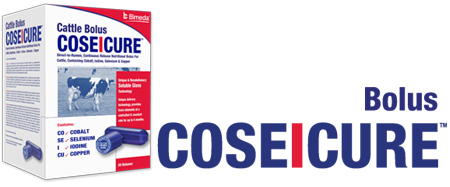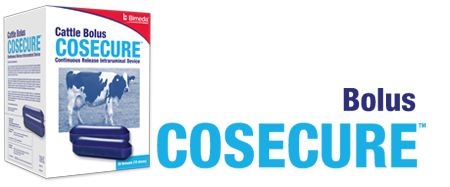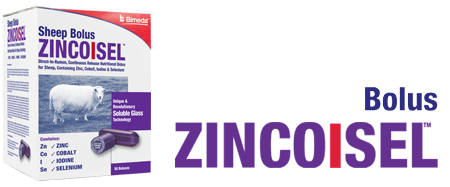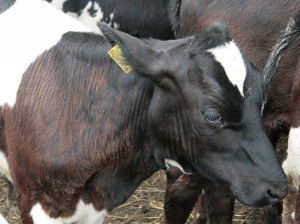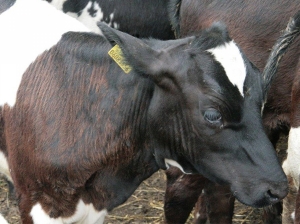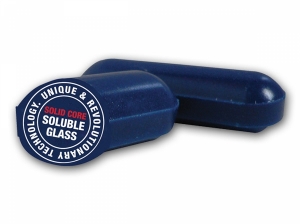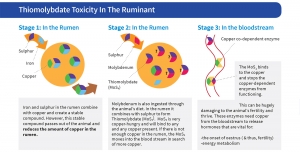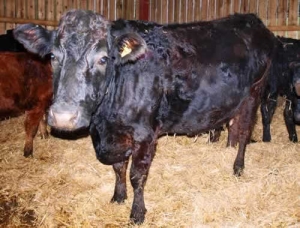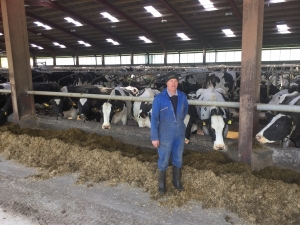Super User
Iodine deficiency is geographical
Iodine deficiency is a geographical problem and occurs when:
- Feeds and water are low in iodine
- Lime & manure have been spread; which can reduce iodine levels in pasture
- Goitrogenic substances are present in feed, eg. kale
- Chemicals block thyroid uptake of iodine
Signs of Iodine Deficiency
- Hairlessness in new-born calves
- Decreased milk yields
- Reduced hormone secretion and reproductive health
- Reduced bone growth and skeletal development
- Poor growth and weight loss
Contact Us
Contact Us - Bimeda Ireland
2, 3 & 4 Airton Close,
Airton Road, Tallaght,
Dublin 24, Ireland
Email: This email address is being protected from spambots. You need JavaScript enabled to view it.
Phone: +353 (0) 1466 7900
Contact Us - Bimeda UK
Unit 2, Bryn Cefni Industrial Park,
Llangefni, Anglesey,
Wales LL77 7XA
Email: This email address is being protected from spambots. You need JavaScript enabled to view it.
Phone: +44 (0) 1248 725400
Additional Information & Additional Services We Provide
We provide technical advice, based on mineral forage analysis and independent blood tests.
Before carrying out any changes to diets and mineral intakes of animals, in particular, the mineral status of the livestock should be known.
If mineral status has not been established, we can arrange independent forage analysis and blood work. In particular we can arrange caeruplasmin copper tests. The most recent work has shown that the ratio of caeruloplasmin activity to plasma copper is likely to identify animals that have a clinical problem and which will respond to copper therapy.
We can put you in touch with an independent agricultural consultant to advise on general farm practices as well as diet formulations.
Welsh Language / Laith Gymraeg
Our boluses are proudly manufactured at our facility in Denbigh, Wales, and we have provided an option to view this website in Welsh. Please be aware, the translation to Welsh is provided by GTranslate. Bimeda cannot verify the accuracy of the translations provided. For accurate product information, please refer only to the English-language data sheets.
Trace Element Supplementation In Cattle – Are your Investments False Economies?
Whether your main enterprise is beef or dairy, it is a well-documented fact that ensuring the optimum trace element status in your herd is critical to optimise productivity and to promote fertility.
Where some farmers struggle is in differentiating between the plethora of nutritional products available; from free access systems such as licks and blocks, to injections, feed supplements and boluses.
To shed some light on the issue, Bimeda Professional Services Veterinarian, Rachel Mallet, here talks about some of the key trace element deficiencies in cattle, and the options to address these.
Bimeda Launches New Videos – How to Administer Boluses
Bimeda are pleased to launch two new videos, which explain how to correctly administer our soluble glass boluses for sheep and cattle. Padraig Hyland, former Technical Vet for Bimeda, features in the video, commented, ‘when it comes to bolusing, correct application is the key to success. That’s why we have launched these two videos which show the correct method to administer our sheep and cattle boluses (Zincosel, Cosecure and Coseicure). It is vital that the boluses are brought to room temperature before application and that they are administered as demonstrated in these videos’.
You can find the videos on the How to Administer page of the website.
Productivity, Fertility and Nutrition: Are We Missing A Trick?
Interested in the theme of mineral deficiencies in dairy cattle? Read on. Vet Pat Noonan talks in this month’s Veterinary Journal Ireland, about mineral deficiencies in dairy cattle, with particular focus on the role of copper and molybdenum.
Bimeda Acquires Telsol LTD
Acquisition of bolus with unique delivery technology to enhance ruminant product range
Bimeda announced today that is has acquired UK based Telsol Limited. Telsol manufacture and market a range of large animal boluses that deliver superior benefits to livestock in the areas of weight gain and fertility, in particular.
From Double Glazing To Cows Grazing: How A Glass Company Improved Fertility & Thrive In Cattle & Sheep
When you think of Pilkington Glass, what do you think about? Double-glazing? Probably. Conservatories? Possibly. What about animal health? Unlikely. However, Pilkington Glass is partially to thank for the reliability of trace element supplementation in cattle and sheep. A unique partnership between Pilkington Glass and Animal Nutrition experts at the University of Leeds, resulted in the development of a revolutionary soluble glass bolus which has been used worldwide. To find out more about this revolutionary technology, read on.
Are blood analyses telling you there's nothing wrong but your animals are telling you something different?
A Farmer Focus - Hill Farm Story
Mr Davies farms beef and sheep on a hill farm in Mid-Wales. The ground has been improved and both nitrogen fertiliser and lime have been applied, although it is some years since lime was put down.
Testimonial27
Roy McCrea farms with his two sons, Richard and Mark in Tree Tops Farm. The farm is located in picturesque Claudy in Co. Derry, Northern Ireland. Tree Tops Farm is a dairy enterprise which milks 700 cows. The cows are very high performing, with milk yields of 9000kg, and the farm supplies Stathroy Dairies.
